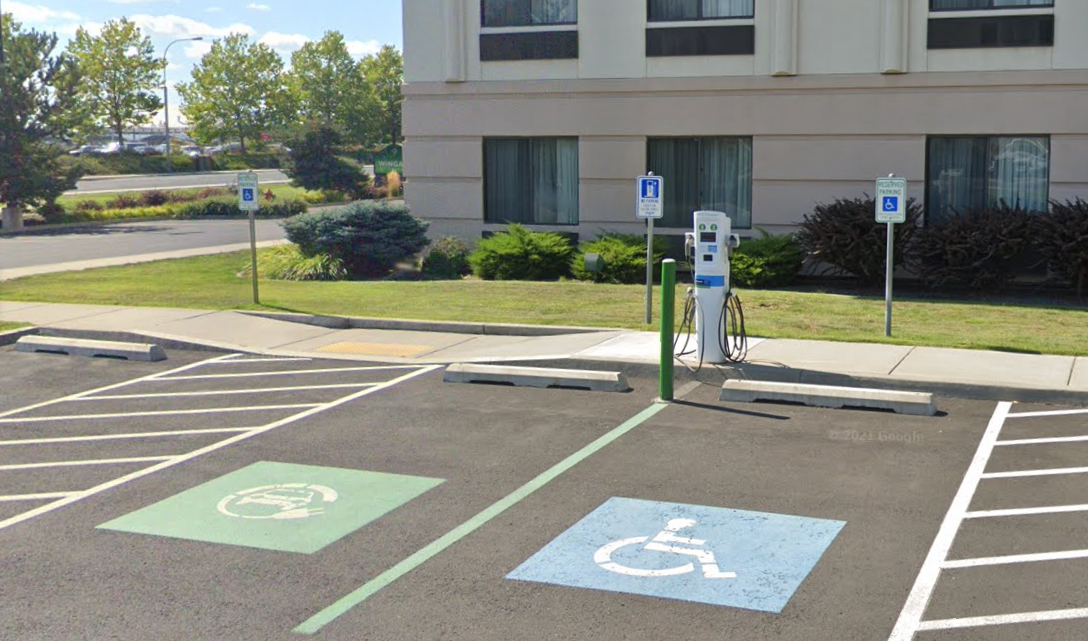A Fresh Charge for Avista EV Program
Background
Focused on the production, transmission, and distribution of energy, Avista Utilities provides electricity to nearly 403,000 customers and natural gas to about 369,000 customers across 30,000 square miles and four northwestern states, including Washington, northern Idaho, and parts of southern and eastern Oregon.
Founded in 1889 on the banks of the Spokane River, Avista has served its customers with an electric generation resource mix that is more than half renewable, keeping its carbon emissions among the lowest in the nation.
Avista has a strong history of leveraging renewable energy solutions and promotes sustainability as part of its business practice. The company manages its operations and facilities to preserve and protect the environment while maintaining reliability and affordability for its customers.
"At Avista we believe electric transportation can benefit all customers and society as a whole—not just those using EVs and other forms of electrified transportation equipment—by using a cheaper and cleaner fuel, more efficiently utilizing grid infrastructure, and integrating renewable power resources that energize a healthy and more sustainable economy," said Rendall Farley, manager of electric transportation at Avista Utilities.
The Challenge
As an energy provider, Avista carefully considers how its business intersects with the environment. Avista is addressing climate change-related issues by using cheaper and cleaner fuel, more efficiently utilizing grid infrastructure, and integrating renewable power resources. Avista plans to install a Level 2 (L2) charger in every small town in Eastern Washington, further building out the infrastructure needed to support electric transportation and cut carbon emissions. While this original plan remains in place, Avista quickly realized it needed higher-level charging options (DC fast charging, specifically) to empower its customers to traverse the spread-out region effectively.
The L2 and DC fast-charging stations had to be reliable, accessible, and easily managed. Avista installed its first chargers in 2016 and promptly faced a slew of complications, including interoperability issues between charge station providers, insufficient support from the entities managing the stations, and too little sophistication in the systems that collect charge station data.
The utility needed stations to work together and a network which ensured dependability for customers, so Avista sought out solutions and services that would provide exceptional service and support to charging site hosts and drivers.
The Solution
In the effort to support its growing network of stations and drivers, Avista decided to diversify its network options. Avista Utilities added EV Connect to its list of approved vendors as a result of its support of open standards, the ease with which a partial network switch could transition chargers already in the utility’s Electric Vehicle Supply Equipment (EVSE) program, and the management and maintenance capabilities of the EV Connect platform.
When it was time to expand deployments and diversify hardware purchases, EV Connect provided a scalable network option for Avista by mitigating the need to work with multiple software vendors and ensuring the chargers would work together through the software platform.
Through the EV Connect platform, Avista was able to monitor the health of each station, and with the support of EV Connect, quickly diagnose and resolve active or potential issues to ensure optimal station uptime.
EV Connect also provides Avista detailed information about the utility’s entire EV charging network through the Utility Partner Console. The Utility Partner Console enables utility stakeholders to connect to site hosts participating in utility programs, gain visibility into the number of stations and ports deployed, and collect detailed information about the status of chargers and track overall activity -- all in one practical user profile view.
“We are embracing the electrification of transportation, and with the support of companies like EV Connect we can deliver great experiences and value to our site hosts and EV driver customers,” said Rendall Farley, manager of electric transportation at Avista Utilities. “Our engagement with EV Connect gives us the insights we need to provide our customers with more sustainable transportation options and scale our EV network more easily. Thanks to their hardware-agnostic approach and embrace of open standards, EV Connect gives us tremendous flexibility in how we structure our deployment of EV charging infrastructure.”
The Results
With EV Connect at its side, Avista is well on its way to expanding a reliable and versatile EV charging network. The utility now has the insights and data they need to ensure charge station uptime and grid resilience. Avista Utilities can add, monitor, and manage a greater variety of hardware from charge station providers through a single interface in the EV Connect platform’s Utility Partner Console. As federal dollars continue to drive towards the EV space, Avista is ready to work in concert with federal and state guidelines for charging infrastructure expansion in rural and underserved areas.
Since its initial agreement with EV Connect, Avista Utilities has successfully swapped thirty Level 2 charging ports to the EV Connect platform and placed additional orders for DCFC stations, the first of which is already in use. EV Connect now manages dozens of the active charging stations under Avista, including chargers from trusted EV Connect hardware partners such as BTC Power, ABB, and EVoCharge. In the past two years of greatly reduced driving, EV Connect still helped Avista power more than 13,000 electric miles.

